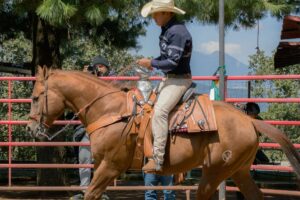
When it comes to the equestrian world, legal issues can quickly gallop into your life if you’re not careful. To ensure a smooth ride and protect yourself from potential legal entanglements, it’s essential to be aware of common equine legal challenges and take proactive measures. In this article, we’ll explore some practical tips and insights to help you navigate the legal landscape surrounding horses and horse-related activities.
Liability Waivers and Releases:
One of the fundamental ways to safeguard yourself from legal complications is by implementing well-drafted liability waivers and releases. These legal documents can shield you from liability in case of accidents, injuries, or property damage that may occur during horse-related activities. Consult with a knowledgeable equine attorney to create customized waivers and releases that align with your specific circumstances.
Equine Activity Statutes:
Many states have enacted equine activity statutes to provide limited liability protection for horse owners, professionals, and participants involved in equine activities. Familiarize yourself with the specific statutes applicable in your jurisdiction and understand the requirements they impose. Compliance with these statutes can offer an additional layer of legal protection.

Horse Sales and Leases:
Whether you’re buying, selling, or leasing a horse, it’s crucial to ensure that all agreements and contracts are carefully drafted, reviewed, and understood by all parties involved. These documents should outline important details such as purchase price, payment terms, warranties, and any specific conditions or limitations. Engaging an equine attorney can help you navigate the complexities and ensure that your interests are protected.
Property and Facility Issues:
If you own or manage a stable, barn, or any equestrian facility, it’s essential to address potential property and facility-related legal issues. Regularly inspect and maintain your premises to minimize risks of accidents or injuries. Clearly post warning signs, enforce safety protocols, and have well-defined contracts in place for boarding, training, and other services offered.
Equine Insurance:
Securing appropriate insurance coverage for your horses, property, and liability is a prudent step to protect yourself financially. Consult with an equine insurance specialist to assess your specific needs and explore insurance options tailored to the equestrian industry. Adequate insurance coverage can provide peace of mind and serve as a safety net in the event of unexpected circumstances.
Equine Professionals:
If you’re hiring equine professionals such as trainers, veterinarians, or farriers, it’s essential to establish clear contractual agreements outlining their responsibilities, fees, and any liability limitations. Ensure that these professionals carry their own liability insurance and are qualified and licensed in their respective fields. Regularly review their services and address any concerns promptly.
Conclusion: While horses bring immense joy and fulfillment to our lives, it’s crucial to be aware of and proactive in managing equine legal issues. By implementing preventive measures, seeking expert advice, and staying informed about relevant laws and regulations, you can minimize the chances of legal disputes and focus on enjoying your equine pursuits. Remember, an ounce of prevention is worth a pound of cure when it comes to equine legal challenges.






